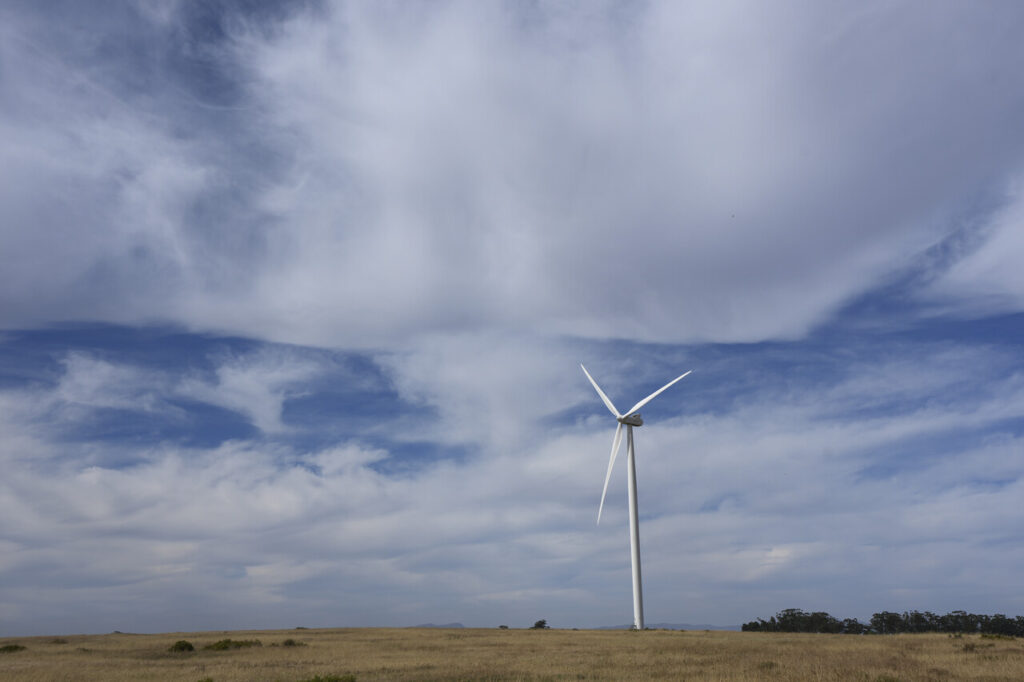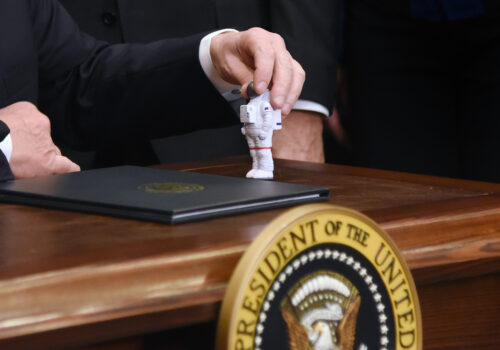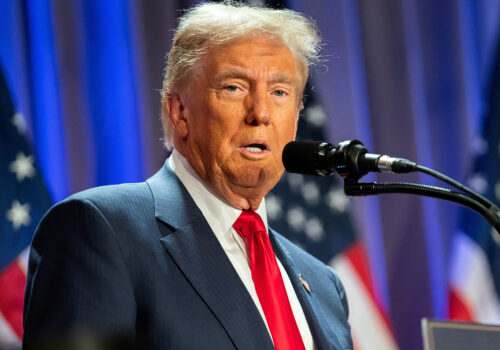As the climate crisis worsens, all countries must curb their greenhouse gas (GHG) emissions, including by reducing their reliance on fossil fuels.
But while all countries should contribute to the global effort, they shouldn’t cut their emissions by the same proportions. Each country’s burden should be determined by their per capita emissions—not on rates of change in emissions. And the world’s poorest countries, including many in Africa, have not contributed anywhere near as much to climate change as industrialized nations.
Africa, specifically, is responsible for only 3.7 percent of carbon emissions from the burning of fossil fuels. Its per capita emissions are far lower than any other region. In addition, the African continent needs more plentiful and reliable energy supplies to fuel its development, both economic (as reliable energy supports manufacturing) and human (as energy allows children to do their homework in the evenings and medicines to be stored).
Meanwhile, industrialized countries are moving ahead with fossil fuel projects: The United States is looking to raise domestic oil production, while China has moved forward with building 94.5 gigawatts of new coal-fired power plants. In contrast, South Africa—which has the biggest installed generating capacity in Africa—has a total installed capacity of just 63.4 gigawatts. The International Energy Agency warned in 2021 that global climate goals may be missed if new fossil fuel projects proceed.
Before the international community asks African countries to leave undeveloped fossil fuel resources in the ground, it must make them an offer of clean energy financing—one substantial enough to fund Africa’s current and future appetite for electricity. Doing so would not only help reduce GHG emissions: It would also support Africa’s electrification and development goals.
A just energy transition
Slow progress on increasing electrification rates is already being made in Africa. Just over half of all Africans now have access to electricity at home for the first time, while twelve countries, including the Democratic Republic of Congo, Kenya, and Nigeria, published detailed plans in January 2025 to connect more people to their respective grids. Population growth is driving up demand, which will be further boosted by the uptake of technologies such as electric vehicles in the future.
Amid this growing access to and demand for energy, the international community must offer clean energy financing to African countries and companies to convince them to forego fossil fuel development. Offering this financing now, as energy infrastructure is being constructed from scratch, would allow Africa to build infrastructure and supply chains meant for clean energy, instead of building them up for fossil fuels and having to adapt them later—at greater financial cost. It would have the added benefit of promoting economic development and higher living standards in Africa, which would dampen security threats and ease long-term migration pressures.
Some argue that Africa, for the sake of its development, should be allowed time to use fossil fuels such as gas, which is seen by some as a bridging fuel and thus part of the climate solution. However, emissions from gas-fired plants are at least half as high as those from coal, making gas a driver of climate change.
Additionally, financing is already difficult for some fossil fuel projects. Landlocked Botswana, for example, has 212 billion tons of coal that is largely undeveloped because large-scale mining would require exports. Proposed coal railways from Botswana to ports in either Namibia or Mozambique have failed to secure funding because of reticence among banks and financial institutions about financing coal projects. At the same time, Botswana has a generating capacity of only 892 megawatts and relies on electricity imports. New coal plants would be an obvious option, but here too financing is challenging. Clean energy such as solar offers a more fundable option.
Some projects are managing to secure financing—but only just. For example, the five-billion-dollar East African Crude Oil Pipeline project that will funnel oil from Uganda to the Tanzanian port of Tanga has attracted a great deal of criticism from environmental organizations and the European Union among others, with some calling on banks to rescind their financing. This seems unlikely given that construction began in late 2024. However, Ugandan efforts to secure financing for an oil refinery have thus far failed, pushing the government and UAE partner Alpha MBM Investments to try to fund it themselves. The project will ultimately contribute to climate change, but Kampala argues it must focus on economic development.
Some efforts are being made to offer countries clean energy investment in return for a reduction in fossil fuel development. For example, a group of Western countries has set up Just Energy Transition Partnerships (JETPs) to mobilize public and private finance for low-carbon projects in return for commitments on renewables or energy sector emissions. However, progress has been far too slow, with just four JETPs signed since 2021. Those four include partnerships with Indonesia ($20 billion), Senegal ($2.6 billion), South Africa ($11.6 billion), and Vietnam ($15.5 billion). Funding on this scale should be agreed with every developing country. According to the International Energy Agency, Africa needs investment of $200 billion a year by 2030 to achieve universal access to electricity and meet climate change pledges.
Challenging but possible
Many will argue that putting together such huge funding packages is impossible at the current time because of profound global economic and political instability and high sovereign debt levels after the COVID-19 crisis. Yet governments found the money for mitigation measures during the pandemic. For example, the United States spent $4.6 trillion; the United Kingdom spent between $387 billion and $512 billion. The required finance can be made available in times of real crisis—and climate change is a monumental crisis.
The real stumbling block is political will. Gaining political support for funding on this scale would be difficult at any time, but an ongoing uptick in nationalism and protectionism makes it even more challenging. The United States and European powers would have to participate, and other countries should too, including China, Japan, South Korea, and the Gulf states. And when governments seem hesitant about participating—for example, the Trump administration currently views overseas aid in a dim light—actors in the private sector, from corporations to philanthropists, can help.
Whether this plan is implemented by beefing up the JETP program or via a new vehicle, apportioning the money will be difficult. Many African countries have little or no hydrocarbons or coal. Thus, a continent-wide approach may be needed to ensure that the financing makes the desired impact, both in terms of boosting clean energy access and reducing fossil fuel development. Such an approach can include an agreement, possibly made through the African Union, although this could agitate those countries actually giving up their fossil fuel resources.
In addition to financing, technical support and skills transfer would also be needed. North American and European grid operators and bureaucracies are still struggling to keep up with the pace of complicated permit and grid interconnection applications from renewable energy developers. Such bottlenecks can derail development, so African governments need technical support, while international solar, wind, and storage operators could help build up the operations and maintenance expertise needed to ensure assets remain operational.
Africa has vast clean energy potential—it is home to 60 percent of the world’s best solar resources. However, the continent hosts just 1 percent of global solar generating capacity, about the same amount as the not-particularly-sunny country of Belgium. If the international community truly wants African countries to turn away from fossil fuel development, it will need to give those countries the financing to harness that clean energy potential. The big question is whether the international community is really serious about it.
Neil Ford is a freelance consultant and journalist on African affairs and the global energy sector. He produces reports for a wide range of organizations and has a PhD in East African development.

The Africa Center works to promote dynamic geopolitical partnerships with African states and to redirect US and European policy priorities toward strengthening security and bolstering economic growth and prosperity on the continent.
Further reading
Wed, Feb 12, 2025
Trump should patch the holes in US-Africa space cooperation
AfricaSource By
In order to harness the opportunities of the African space sector, the United States must also fill the gaps in its space coordination with Africa.
Thu, Feb 6, 2025
The United States needs a new guiding message in promoting LGBTQI+ rights in Africa: Tolerance
AfricaSource By Richard K. Bell
The United States should point to the fact that LGBTQI+ rights are, indeed, rights—and as is the case with rights, they have a legal basis.
Tue, Dec 17, 2024
There’s a rare opportunity to deepen US-Somaliland ties. But several obstacles stand in the way.
AfricaSource By
New administrations in both Washington and Hargeisa could begin a new chapter of relations.
Image: A wind turbine on the Darling Wind Farm outside Cape Town, South Africa, on November 8, 2024. Photo by Matrix Images/Nic Bothma via Reuters.



